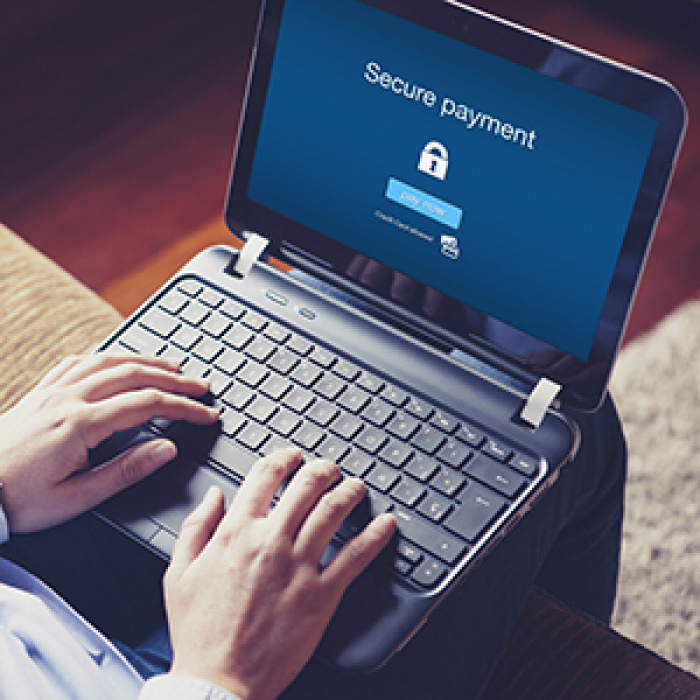- Locations
- Aberdeen Branch
- APG Branch
- Bel Air — Amyclae Branch
- Bel Air — Home Loan Center, Main St. (No ATM)
- Bel Air — Laurel Bush Branch
- Bel Air — Main St. Branch
- Cecil College Branch
- Chesapeake City Branch
- Edgewood Branch
- Elkton Branch
- Fallston Branch
- Forest Hill Branch
- Havre de Grace Branch
- North East Branch
- Rising Sun Branch
- Riverside Branch
- Branch Appointment Requests
Alert!
APGFCU will NEVER call, text or email asking for personal information. If you receive such a request, please contact us directly at our published number.
Branch appointments and drive-thrus are available. Stimulus check information. Click here for details.
APGFCU branches will open at 11 a.m. today. Online/Mobile Banking, Call Center and ABBY Telephone Teller are available.
Alert!
We are currently experiencing higher-than-normal call volume. Please consider Online/Mobile Banking for routine inquiries.
Riverside Branch will be temporarily closed starting 1/8/2021 and is anticipated to reopen on 1/11/2021. We apologize for the inconvenience.
The banking system will be down for maintenance, beginning at midnight Saturday until approximately 3:00am Sunday.

-
Articles & Resource Library
Articles & Resource Library
With a focus on community, APGFCU knows how important it is to share our knowledge for building and protecting wealth. Check out our resource library below, including helpful links, articles and infographics on an array of financial topics.
Financial Education
-
Get the Most out of Your APGFCU® Visa® Debit Card
2021-02-01 | News Financial EducationIn today’s modern, technology-driven environment, efficiency is everything. Save time and effort paying for everyday items with an APGFCU® Visa® Debit Card. Avoid fumbling around with cash and checks and opt for a single payment option that empowers you to shop conveniently and with confidence.
-
Mastering the 5 C’s of Creditworthiness
2021-02-01 | News Financial EducationMeeting with a financial institution to determine if you are qualified for a loan can be intimidating and confusing. You might be feeling unprepared or worried that you may have overlooked key criteria of the loan-granting process. Fortunately, many traditional lenders use a framework of five main characteristics, or C’s, to evaluate potential borrowers for both personal and business lending needs.
-

Getting the Most Out of an Online Learning Event
2021-01-08 | News Financial EducationIn today’s ever-changing and technology-driven world, online learning is becoming the educational method of choice. From one-on-one webinars to cross-company conferences, many are utilizing and leveraging online learning events for professional and personal gain. Virtual events are not only cost-effective by avoiding the need for plane tickets, hotel stays and meal expenses, but also convenient as a participant can log on from anywhere with an internet connection.
Adjusting to the cadence of online learning can be challenging. To help, here are a list of tips to get the most out of your next virtual experience.
-
8 Ways to Unlock More with an APGFCU® Visa® Credit Card
2021-01-08 | News Financial EducationJuggling housing and vehicle costs, insurance, groceries, entertainment, everyday expenses and more can be overwhelming and wear a hole in your wallet. The good news: there is an easier option. Simplify your in-store, online and in-app purchases – big or small – with an affordable APGFCU® Visa® Credit Card to speed through checkout and get back to your day. With low, competitive interest rates on a variety of card types, we have tailored options to fit your unique needs of today and tomorrow.
-

Talking Turkey: 6 Ways to Save This Thanksgiving
2020-12-11 | News Financial EducationThanksgiving is a time to reflect on the past year and appreciate your blessings and opportunities. However, your festive feast could be gobbling up your budget. In 2019, the average American spent an estimated $186 on Thanksgiving – an over 5% increase from the previous year1. Of this, 82% is spent on food, drinks and other meal expenses1. Additionally, Americans purchase over 700 million pounds of turkey for their Thanksgiving meals each year – 35% of which goes to waste2.
Let’s take a look at a few ways you can trim your Thanksgiving spending and celebrate without starving your wallet.
-
When is a Personal Loan the Right Choice?
2020-12-11 | News Financial EducationHere are five types of life events we’ve helped finance for our members with an APGFCU® Personal Loan. Let us help you, too.
-
Beat the Heat: 7 Tips to Save This Summer
2020-12-10 | News Financial EducationSummer months are a time for fun, sun, and adventure. Unfortunately, that can come with a price. Utility costs, especially electricity, often spike in the summer when many are cranking the air conditioning to keep their homes comfortable. To help keep you and your wallet cool this summer, we have compiled a list of tips to cut down on expensive habits, increase efficiency, and save.
-
Which Auto Financing Option is the Best Deal?
2020-11-19 | News Financial EducationFinancing a new car can be a stressful ordeal. You’re making a large purchase and at the same time the dealer may be offering several diverse financing options. You may find yourself asking – Which is the best financing option for me? Thankfully, we are here to help.
Home Ownership
-
11 Types of Home Mortgage Loans & How to Choose Yours
2025-07-09 | News Home OwnershipIn this blog, we’ll take a deep dive into 11 different mortgage loans that APGFCU offers, their requirements and parameters, and the pros and cons of each to help you choose the best one for you.
-
A Guide to the Mortgage Loan Closing Process & Closing Costs
2025-07-09 | News Home OwnershipThe mortgage loan closing process is the final step to becoming a homeowner. Although exciting, it can also feel overwhelming, even if you've bought property before. Knowing what to expect and being prepared can ensure a smooth and stress-free experience.
-
How Long Does It Take To Buy A House In Maryland?
2025-07-09 | News Home OwnershipPutting down roots with a home of your own is exciting, and it’s understandable if you are anxious to move through the process as quickly as possible. Perhaps you’re wondering how long buying a house takes in Maryland.
-
Can and Should You Have a Cosigner on a Mortgage Loan?
2025-07-09 | News Home OwnershipIn this blog, we’ll walk you through the process of cosigning on a mortgage loan, the pros and cons for both the borrower and the cosigner, other important factors to consider when cosigning a mortgage loan, and alternative options if cosigning isn’t a good fit for you.
-
Why Get Pre-Approved for a Mortgage? 5 Questions Answered.
2025-04-02 | News Home OwnershipBuying a home is one of the most important financial decisions you'll make, and the process often begins with mortgage pre-approval. This is something you’ll want to do before you start searching for the perfect home.
-
Mortgage Checklist: Documents & Steps For A Smooth Approval
2025-04-02 | News Home OwnershipNavigating the mortgage loan approval process can feel overwhelming, but being prepared makes all the difference. Having the right documents in hand before you apply ensures a smoother, faster process and increases your chances of getting approved. A mortgage checklist can help you organize your information so you don't miss anything important.
-
Should I Refinance Before I Retire?
2020-12-11 | News Home OwnershipRefinancing your existing mortgage can have a significant impact on your financial health, for better or for worse. Be sure to consider all options before deciding if a pre-retirement refinance is right for you.
College Planning
Retirement
Fraud and Security
-
Pulling on Your Heartstrings: Sweetheart Scam Red Flags
2021-02-01 | News Fraud and SecurityIn today’s world where online dating is increasingly common, not everything — or everyone — is what it seems. Cybercriminals have seized this opportunity to target the vulnerable and unsuspecting for financial gain in sweetheart or romance scams.
-
Real or Fake? 8 Ways to Determine the Legitimacy of a Financial Institution’s Website
2020-12-21 | News Fraud and SecurityOnline and mobile banking is becoming the new normal for consumers on-the-go. Managing accounts virtually empowers individuals to gain better visibility into their finances anywhere, anytime, with just a few clicks. However, linking your financial account to the correct and legitimate website can sometimes be tricky.
Cybercriminals frequently replicate valid websites to con unsuspecting consumers into either opening malicious links on their page that flood their device with malware, or divulging personal information, which they can use to wipe out your account or steal your identity. While these sites may appear similar to legitimate sites, there are a few red flags you can identify to determine the validity of your financial institution’s website. -

Breaking Down Financial Threats and Ways to Safeguard
2020-12-21 | News Fraud and SecurityAs our modern world leans more and more into streamlining efficiency and speed via technological advances, we need to be vigilant in protecting our personal information – especially when it comes to finances. With every passing day, scammers and hackers are coming up with new methods to gain access to our sensitive information without us even knowing.
However, there are a few common ways personal information can be stolen that are preventable if you are aware of and understand the consequences. To help, we’ve compiled a list of common scams, which could put your financial health at risk.
-
Protecting Your Online Accounts: 14 Tips to Stay Vigilant
2020-12-21 | News Fraud and SecurityAdvancing technology continues to provide efficiencies and convenience to our daily lives, especially in the forms of online shopping and banking. Where you once needed to physically travel into a store or financial institution to make a purchase or transfer funds, you now have the power and capability to perform many transactions anywhere, anytime from a computer, smartphone, or tablet. And while e-commerce has significantly improved the ease at which we manage our purchases and accounts, it can also put your money and identity in jeopardy.
Cybercriminals are constantly evolving their methods to gain access to your personal information and hack into your accounts with ease – and they’re having enormous success. It is essential to remain vigilant when shopping or banking online to avoid falling victim to a cyber attack. To help, we’ve compiled a list of tips to keep your finances, personal information, and identity secure during online transactions.
-
5 Ways to Improve Your Password and Defend Against Cyberattacks
2020-12-18 | News Fraud and SecurityPasswords are the lock and key to your most sensitive information: finances, account data, Social Security numbers (SSN), and more. But many are easy to figure out, including a birthday, pet’s name, “123456,” or simply “password.” An estimated 95% of cybersecurity breaches are due to human error, and cybercriminals are waiting to take advantage of your mistake and wipe out your accounts.1 Plus, 73% of Microsoft users recycle passwords for both their personal and work accounts, making them all too easy for cybercriminals to figure out.2
-

Cyber Monday Security Tips for Safe Shopping
2020-12-11 | News Fraud and SecurityBlack Friday is the unofficial start of the holiday gift-hunting season, followed quickly by the online-exclusive Cyber Monday. Every year, savvy shoppers and bargain hunters across the country hear the siren song of can’t-miss deals – some of which are too good to be true. As consumers flood the web on Black Friday and Cyber Monday searching for the best discounts, so do scammers, hackers and identity thieves for unsuspecting victims to steal information, funds or worse.
Staying secure is imperative to shopping online during Black Friday and Cyber Monday. To help, we’ve compiled a list of dos and don’ts to avoid getting caught in a scam. -
Vishing and Smishing: Device Scams to Watch
2020-12-10 | News Fraud and SecurityThe expansion of technology into almost every aspect of our daily lives has enabled us to connect and communicate with the world around us faster and easier than ever before. But with the good, also comes danger. Cybercriminals continue to develop ever-evolving methods to take advantage of the various devices that streamline our careers, relationships, and finances – and use them against us through intuitive social engineering attacks such as vishing and smishing.
-
Delivery Text Scam: What You Need to Know to Stay Secure
2020-12-10 | News Fraud and SecurityOnline shopping offers the timeliness and convenience consumers need to keep up with their busy lives – especially during the holidays. E-commerce is expected to grow by 25-35% during the 2020 holiday season and surpass $180 billion in sales for November, December and January1. As you’re waiting on your holiday packages to arrive this season, be careful to avoid getting caught in an emerging phishing scam, which could corrupt your device or jeopardize your financial standing.
Security Resources & Information
Avoiding Fraud & Scams
Resources to Help You Avoid Fraud and Financial Scams
Protecting Against Identity Theft
Tips and Resources to Help You Protect Your Personal Information
Read more articles located in our Article and Resource Library.
